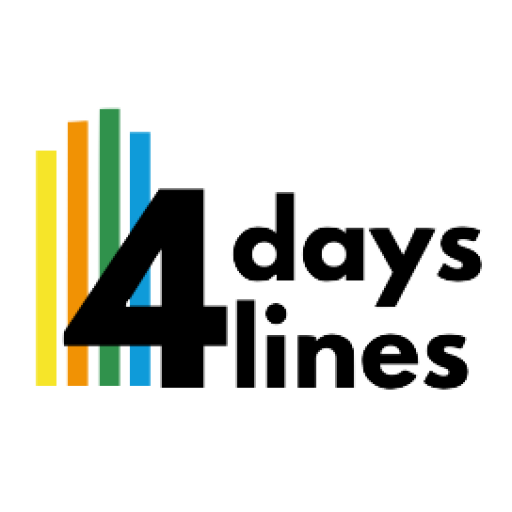Montréal
The Problem
Montreal is a vibrant and culturally diverse city with a harmonious pairing of the historic and the new. With a rich history spanning over 379 years, it has yet to be inclusive for all its citizens. Montreal’s public transit system, in particular, the underground metro system has 68 stations connecting the three islands of Montreal, Laval, and Longueuil. However, only 16 of them have elevators from the ground to the platform level. There are additional barriers for people to access the public transit system and this pattern of limited accessibility can be witnessed across the city. How can all Montrealers access any metro station, neighbourhood, commercial location, educational institute, workplace, and entertainment with ease?
Project Summary
- Transit System Audit
- User-centered Posters
- Civic Experiences
- City Accessibility Audit
The Process
PART 1
Transit System Audit
In July 2020, we conducted an accessibility audit of all 68 metro stations. The results are shared in this article which identifies five odd structural obstacles in the Montreal metro and discusses the extensive design challenge of achieving universal accessibility.
PART 2
User-Centered Posters
This data went into 68 posters placed to help users navigate all 68 stations with ease. You can find all the posters in our second article or on our website in an expandable and downloadable format by clicking the button below.
PART 3
Civic Experiences
We collected people’s complaints and their solutions via social media and radio and hosted a Design CrowdSolve to facilitate feedback for the top three solutions in October 2020.
PART 4
City Accessibility Audit
Volunteers from all walks of life explored their neighbourhoods and conducted a detailed accessibility audit of almost 300 locations in Montreal.
Orange Line Posters
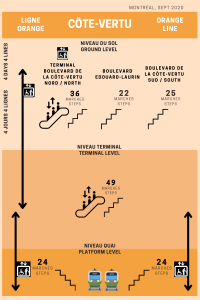
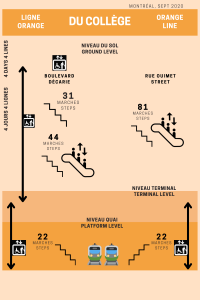
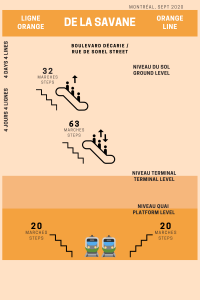
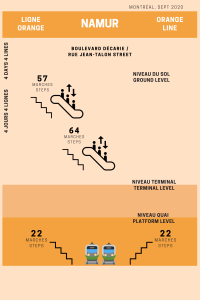
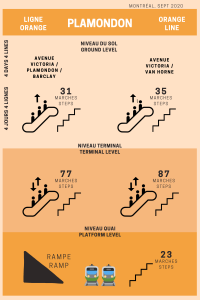
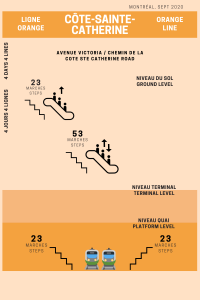
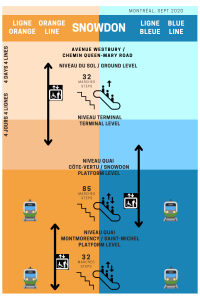
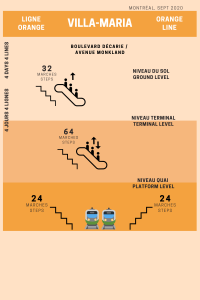
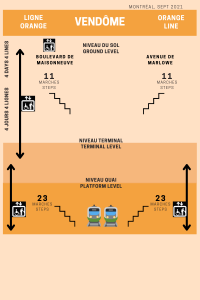
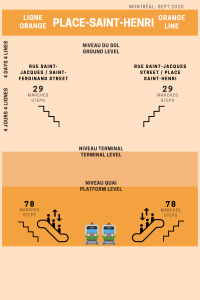
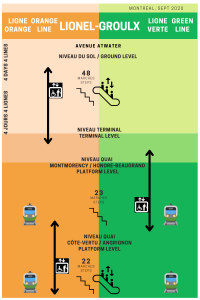
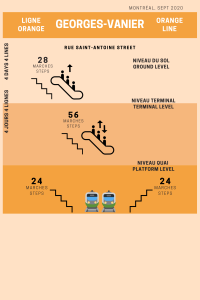
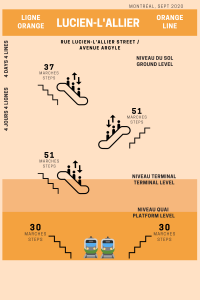
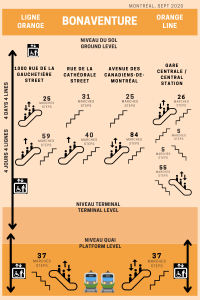
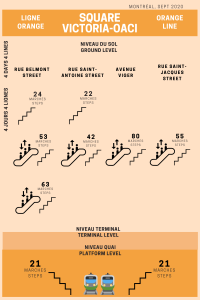
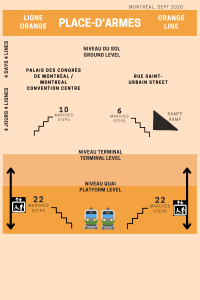
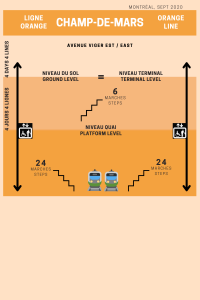
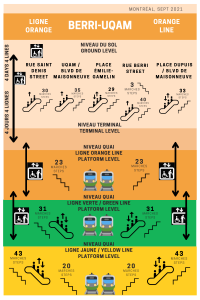
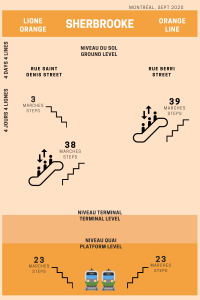
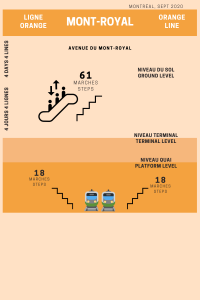
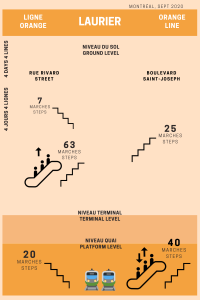
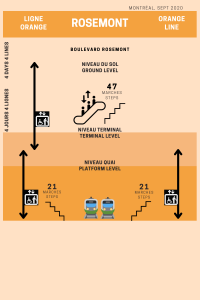
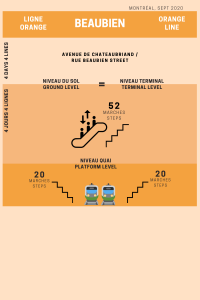
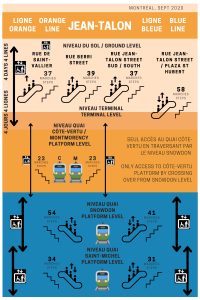
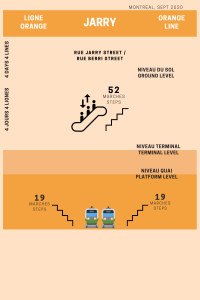
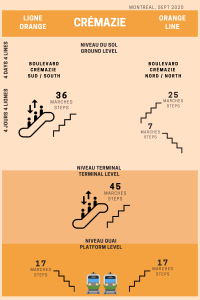
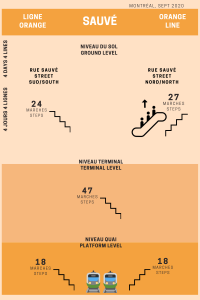
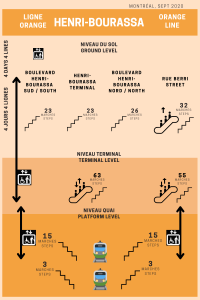
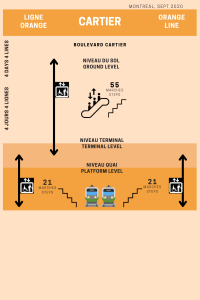
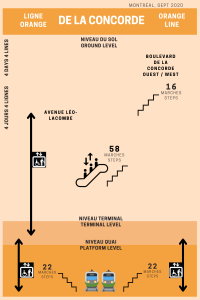
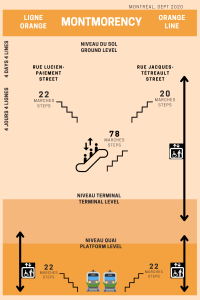
Green Line Posters





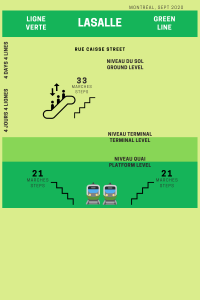





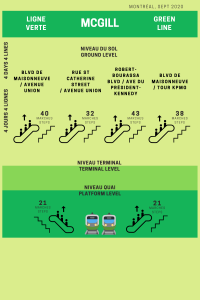










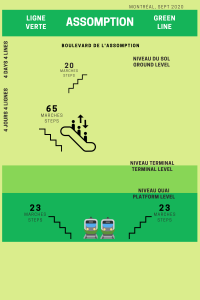


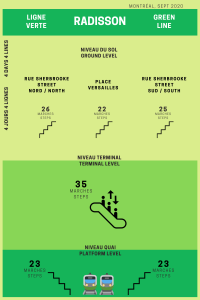

Blue Line Posters
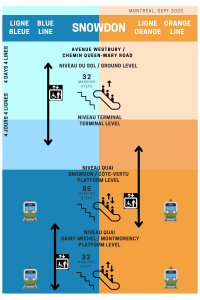
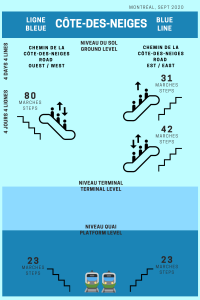
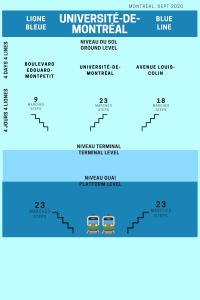
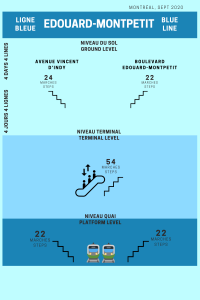
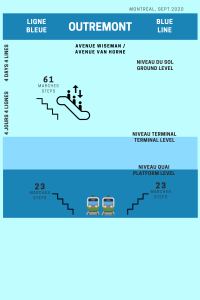
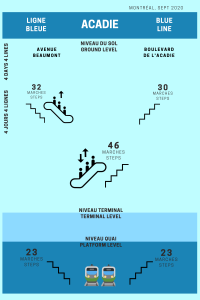
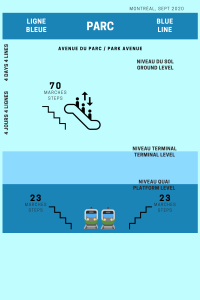
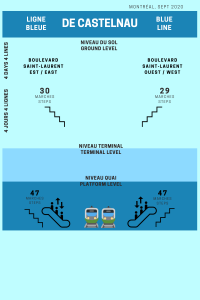
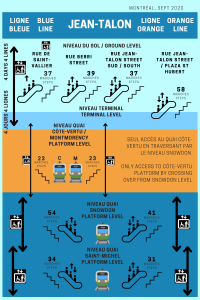
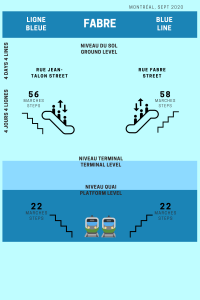
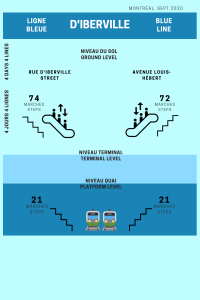
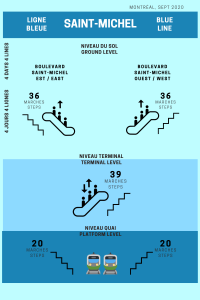
Yellow Line Posters



Results so far
We conducted the accessibility audit of Montreal’s metro system, created awareness among the general population by leveraging social media and radio networks, then created and disseminated user-centred posters to riders with a diverse range of abilities and integrated this information into urban planning research platforms at McGill University. Through Design CrowdSolve, we connected two applications to the appropriate advocacy groups and collaborated with one of them for a city accessibility audit. In the city accessibility audit, we covered the Westmount, NDG, St-Henri, Little Burgundy, Griffintown, Downtown, Gay Village, Hochelaga, Longue-Pointe, Verdun, Plateau, Rosemont, Jean-Talon, and Park-Extension neighbourhoods. We collected this information on an app and tagged locations including grocery stores, libraries, pharmacies, clothing stores, garages, restaurants, banks, clinics, salons, cafes, home improvement stores, florists, ice-cream shops, and book stores.
Everyone, regardless of their abilities, has the right to access each of these locations. Now our task is to ensure that access in the first place.
Stay tuned for our next steps.
What Others Are Doing
POLITICAL AND LEGAL ACTION

Organizations like RAAMM (Regroupement des Aveugles et Amblyopes du Montréal Métropolitain) provide resources for designing services and websites with blind individuals in mind.
APPS

The MUVE app offers accessible on-demand and pre-booked transportation services for door-to-door assistance. Their technology aggregates accessible seats from individuals with accessible vehicles, para-transit authorities, and private transport providers including taxi, contractors, and non-profits.
